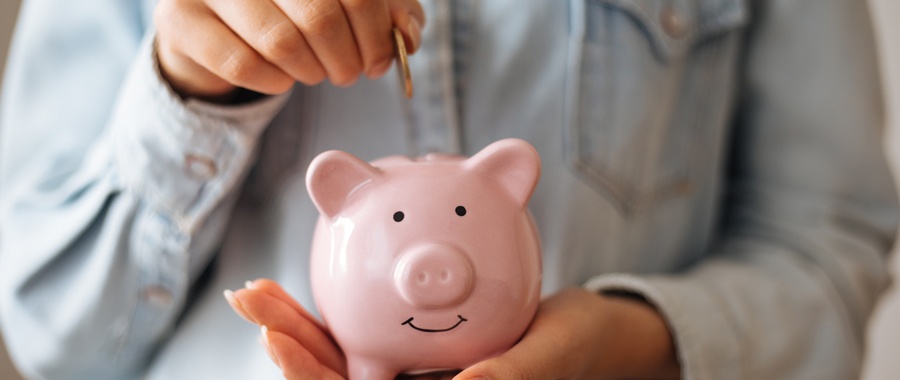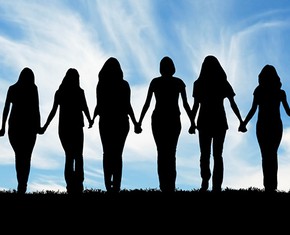The views expressed in our content reflect individual perspectives and do not represent the authoritative views of the Baha'i Faith.
As I move deeper into adulthood, new expenses keep popping up, like apartment upkeep, student loans, and unexpected travel expenses. A tight budget keeps me on track, but sometimes I worry about making ends meet.
It’s all too easy to fall into a money-centered mindset. For the rich and poor alike, our culture promotes the value of accruing as much money as possible. And after we have it, we’re supposed to spend, spend, spend. Entire industries rely on convincing us that we aren’t living life to the fullest if we don’t buy new things. This makes many of us feel like we have to live in survival mode, even when we don’t need to. Even when I’m lucky enough to have general stability and don’t need to be creative with my funds, new financial goals — in reality, new spending goals — emerge.
The Baha’i writings suggest that the key to happiness lies not in accruing more and more money and/or comfort, but in the opposite. Finding ways to give to others allows us to tap into a much more bountiful way of being. While most people would agree that the point of life isn’t to meet financial goals or enjoy what money can buy us, we often don’t act like we disagree with a money-centered life.
Many actions we take can subtly put money first. We may choose certain jobs for the sake of their high pay, or prioritize our desires before giving to others while budgeting. Even when we don’t put money first, money can subconsciously run the show.
To build a prosperous society free from the scourges of injustice and misery, we must all be generous and giving, and transcend the patterns of accumulation and utilization of material means only for the satisfaction of one’s own needs and desires. Generosity is an attribute of the human soul and is independent of the degree of wealth or poverty. A generous soul gives continually for the service of others whether of time, energy, or material resources. – The Universal House of Justice, message to Baha’i Counsellors, 5 October 1992.
At the same time, inequality flourishes. Many people remain in stressful positions where housing, food, transportation, healthcare, and even clean waterare compromised. For some of us, high rates of debt, increasing prices of housing, and basic needs keep us in unstable waters. We don’t just perceive the stress for survival — our realities depend on it.
But even in the face of actual unmet financial needs, staying in a mentality dominated by survival mode isn’t healthy. Similarly, when we find ourselves in a position where our basic needs are met, it’s especially fruitless to center most of our thoughts on making money.
Whether it be perceived need or actual need, we can get stuck on only pursuing material gain. When this happens, we can experience fight, flight, or freeze mode, consistently hypervigilant for opportunities to make more money. We might miss chances to pursue more spiritual gains: to practice generosity, to be kind and considerate, or to develop other aspects of who we are.
Missing the opportunity to develop our ability to be generous does a disservice to our souls:
To be continually giving out for the good of our fellows undeterred by the fear of poverty and reliant on the unfailing bounty of the Source of all wealth and all good— that is the secret of right living. – Shoghi Effendi, Directives From the Guardian
To push back against my tendency to stay in survival mode, I try to stay aware of opportunities for spiritual growth. I try to choose friends who focus on both their spiritual and material development, to think about my work as a place where I can develop both my career and strengthen my character, and to pray throughout the day rather than designating prayer for isolated moments.
When we stay in survival mode, we find it difficult to give and ameliorate the injustice that exists in our society. Even when we can be financially generous, we might find it easy to be stingy with our time and energy. But to live joyfully requires finding ways to gain energy and reconceptualizing the things we do with our time. Sometimes, we categorize things we do as for our happiness, and others as things we do for others. We expect the things we do for others to drain us and the things we do for ourselves to bring us energy.
The truth is that what we consider to be for others often benefits our wellbeing. Many times when I’m feeling down, for example, I help a friend work through a problem or spend time in a space where I can address an issue larger than myself, and it uplifts me. Rather than viewing time as something we give away when we do things that benefit others, we can see time as just something that exists so we can give more freely. And as we give more freely, our life becomes fuller and more enjoyable.
















Comments
Sign in or create an account
Continue with Googleor